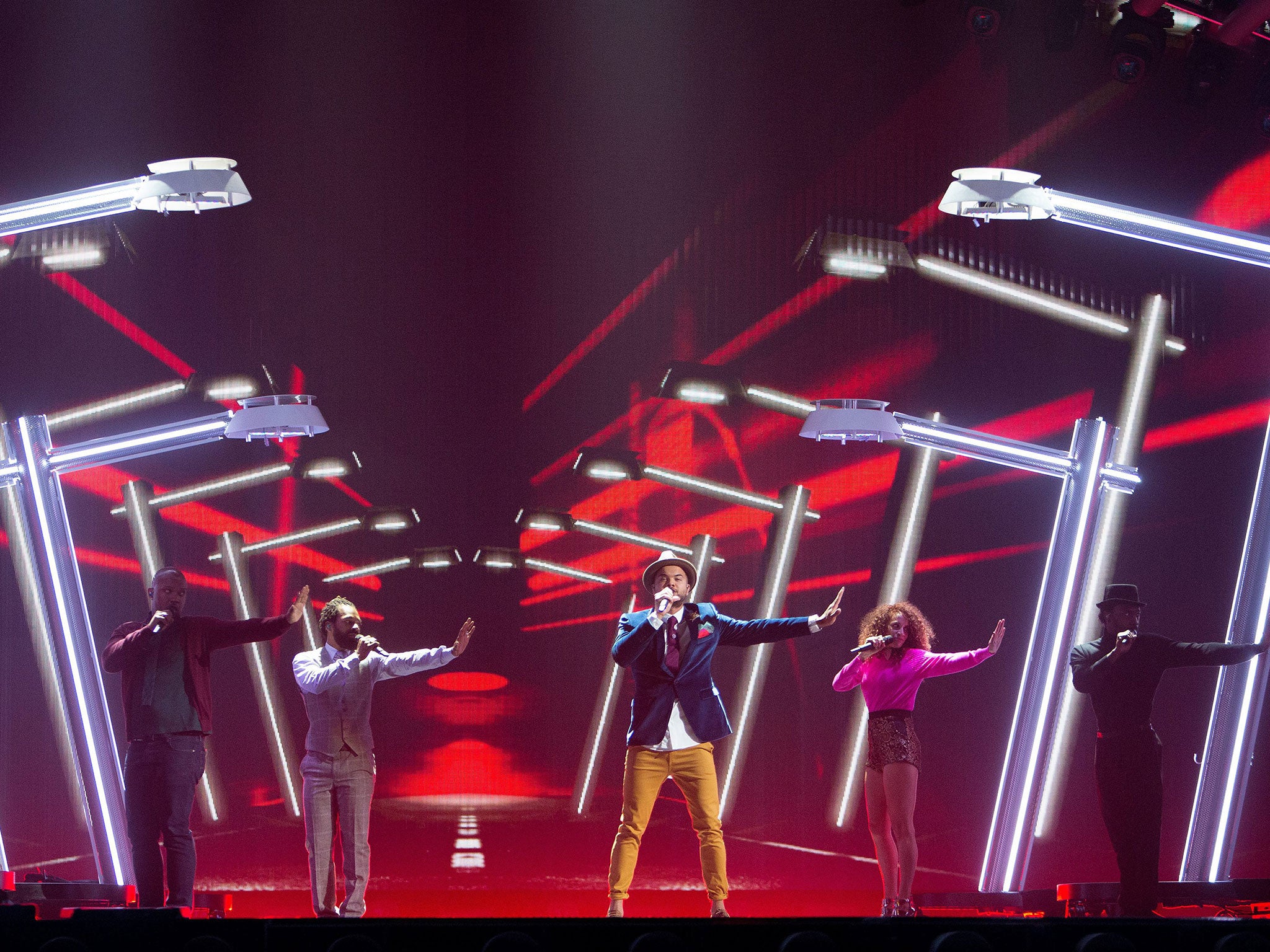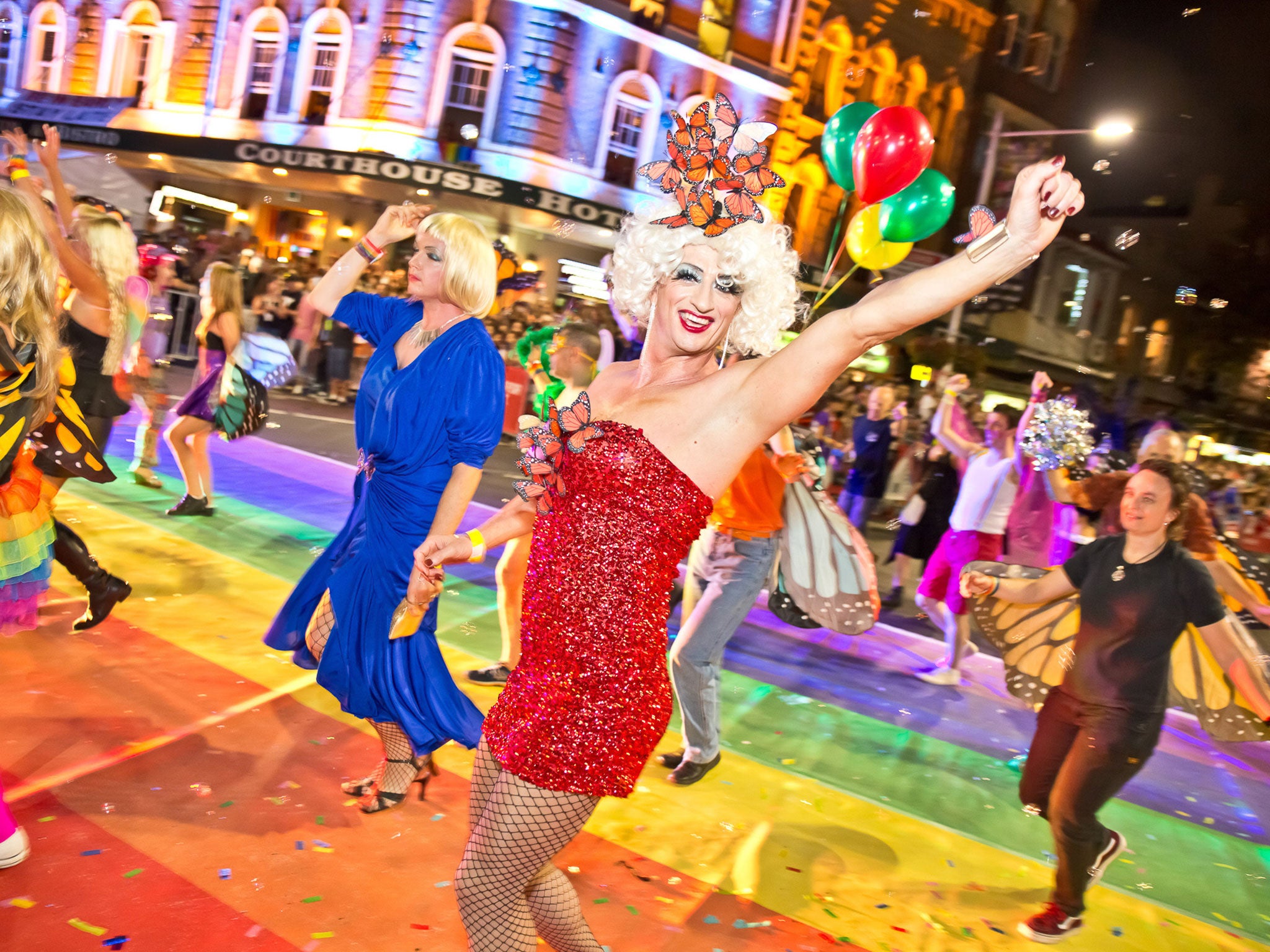Eurovision 2015: Australia will be cheering on its first-ever entrant this Saturday
Australia, a nation of kitsch-worshippers, has always loved the Eurovision Song Contest. Maggie Alderson says it'll fit in fine

Your support helps us to tell the story
From reproductive rights to climate change to Big Tech, The Independent is on the ground when the story is developing. Whether it's investigating the financials of Elon Musk's pro-Trump PAC or producing our latest documentary, 'The A Word', which shines a light on the American women fighting for reproductive rights, we know how important it is to parse out the facts from the messaging.
At such a critical moment in US history, we need reporters on the ground. Your donation allows us to keep sending journalists to speak to both sides of the story.
The Independent is trusted by Americans across the entire political spectrum. And unlike many other quality news outlets, we choose not to lock Americans out of our reporting and analysis with paywalls. We believe quality journalism should be available to everyone, paid for by those who can afford it.
Your support makes all the difference.Picture this: four performers – not the best dancers, not the best singers, but any lack of talent more than compensated by commitment and enthusiasm – throwing themselves around to corny songs in ridiculously over-the-top costumes. What is it?
Well, it could be your average cringe-tastic Eurovision entry – or it could be a scene from Priscilla, Queen of the Desert. Or Muriel's Wedding. Or Strictly Ballroom... or any of number of the Australian film industry's greatest hits.
Even Mad Max could be mistaken for that legendary Finnish heavy metal entry (Lordi, 2006).
So no wonder Australians love Eurovision – the whole thing looks like they have directed it. And this was the country that treated ABBA like The Beatles. They seem programmed to love corny and catchy European tunes.
"Aussies do not suffer from an irony deficiency," says all-Australian London resident author, Kathy Lette. "We also adore kitsch, and approach all artistic endeavours tongue in chic. Sydney is the gay capital of the world and a camp, irreverent, mischievous sensibility has permeated our tastes. At the Olympic closing ceremony, Kylie rode into the arena on a giant flip flop with singing prawns. Need I say more? An over-the-top, sequin-splattered, high kicking, bum-jiggling, tune-slaughtering, camp song fest is right up our boulevard."
So, for many years, it has been a tradition for Australia to settle down, in groups of friends and family, well furnished with drinks and snacks, as per the UK tradition, to watch a recorded screening of the distant chansons sans frontières.
And this year, keen Aussies can watch live from 5am to cheer for their first-ever entrant, Guy Sebastian, as always tuning in on the SBS channel. This stands for Special Broadcasting Service and it was set up in 1979 specifically to cater to Australia's fast-growing and diverse multicultural communities, providing programmes in different languages and of interest to minorities (and to those interested in minority interests – it has great ethnic cooking shows). And this connection between SBS and Eurovision – which it has been airing in Australia for 32 years – gives another hint at the reason for the Northern Hemispheric competition's popularity on the Pacific Rim. It's a taste of home.
"Eurovision is big in Australia because it's a nation with a rich and complex immigrant population," says Michael Idato, television critic of the Sydney Morning Herald, speaking from Vienna where he is covering the event. "Particularly for European Australians, Eurovision is a gentle exploration of their identity and ancestry, decorated around the edges with strange and eccentric songs and performers.
"The immigrant experience in Australia is very connected to an older Europe, rather than the Europe of today, and Eurovision uniquely bridges that, with a history that stretches back to 1956 and a story which seems to tell, oddly, the story of Europe."
Like Kathy Lette, Mr Idato also cites the role of Australia's vibrant gay population in Eurovision's nationwide popularity: "Australia has a loud and proud gay community, which has also become a large and significant audience for Eurovision.

The two groups share certain qualities that seem to touch the thematic heart of the Eurovision Song Contest: a desire and hope for inclusion, and an intimate understanding of those who have undertaken a journey from the fringe of a society to its heart."
Which would make you expect them to enter their campest Mardi Gras drag queen, styled and directed by Baz Lurhman in an extravaganza of Down Under kitsch. Instead, they have chosen their 2003 Pop Idol winner, a serious player on the Australian music scene.
Now a judge on X Factor, with many multiple-platinum singles and albums to his credit, a musician, songwriter and producer, Guy Sebastian is a seriously good singer, with a seriously good song.
Which just goes to show that while they may relish the hokey camp of the other entries, when it comes to actually taking part, in Eurovision – as in so many sports – Australia really just wants to win.
Eurovision showstoppers
The contest has always been a home to eye-watering kitsch, but the desperation to get noticed among a vast field of brightly coloured clowns and fabulous transsexuals has increasingly led entries to slip over the line into the sinister, unsavoury and blatantly over- sexed. After 60 years, there are too many moments to list comprehensively, but here are five from the last decade.
Lordi, Finland 2006
Death metal came to Eurovision and took it by storm. Or possibly by force. The Finnish version of Slipknot actually won with "Hard Rock Hallelujah", stunning viewers – and not necessarily in a good way – with their terrifying fright masks and Orc costumes. Is Middle Earth now part of the ever expanding "Euro" zone?
LT United , Lithuania 2006
The six men in black were early exponents of Euro-irony with their provocative song "We are the Winners", the lyrics then expanding to "of Eurovision…". It started with some promise but, by the time one chap was shouting "WE ARE THE WINNERS" through a megaphone, it was feeling less like post-modern wit and more like post-Soviet aggression.
Scooch, UK 2007
A fresh low point in our woeful Eurovision record. "Flying The Flag" was an inoffensive ditty that reached number five in the charts. It was just unfortunate that a literal-minded producer decided to style the group as though they were actually – geddit? – flying. This was unsubtly rendered with tight hostie uniforms, Mile-High-Club dancing, a mincing steward and six-year-old-boy airplane-arm movements. Doors to manual, indeed.
Dustin, Ireland 2008
An attempt at double irony from their TV comedy star and ventriloquist's dummy Dustin the Turkey – by deliberately being badder than bad – turned out to be as disappointing as an unthawed bird on Christmas morning. The overly knowing song was called "Ireland, Douze Points", a reaction to the previous year, when the Land of Song's entry failed to make it to the final. Nor did this turkey.
Donatan & Cleo, Poland 2014
How many parents sustained injuries diving for the remote, to save their kids' eyes from this blatant porno? Lavishly endowed milkmaids churned butter with an up-and-down motion that could have been choreographed by Benny Hill. The official Eurovision website reports that the video clip has been viewed on YouTube more than 40 million times.
Join our commenting forum
Join thought-provoking conversations, follow other Independent readers and see their replies
Comments